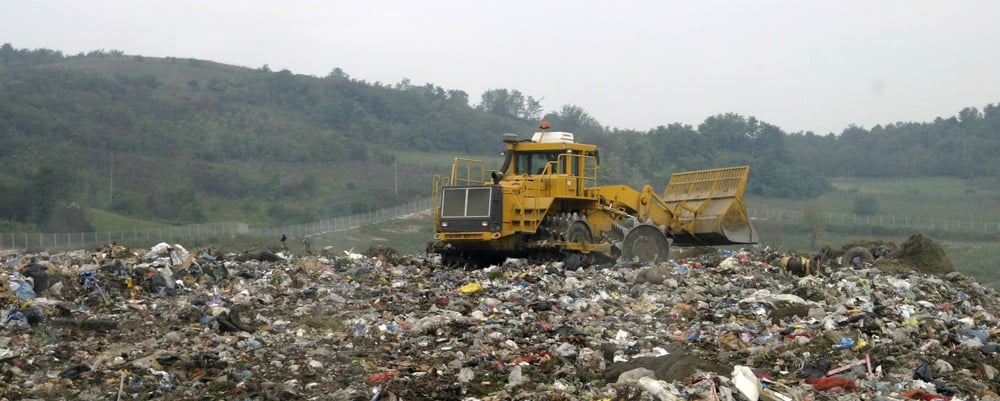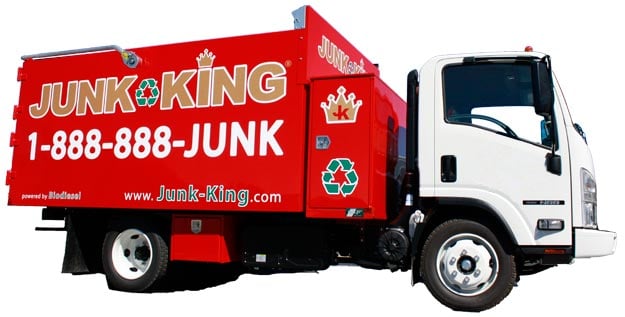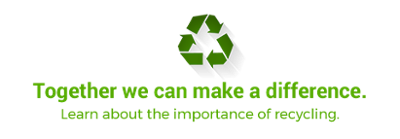.jpg?width=1000&name=1080px-December_3,_2012_%E2%80%93_Household_Hazardous_Waste_separated_for_proper_disposal_(8268772840).jpg)
Disposing of household hazardous waste is becoming increasingly difficult for homeowners and others as new laws make it harder to get rid of.
Adding to the problem is the fact that many homeowners, renters and others aren't even aware that some of the junk and debris they need to dispose of is considered hazardous waste.
That's No Way to Treat My Old Wood Debris
Take California's recently enacted a change in its regulations regarding the legal and proper disposal of Treated Wood Waste, or TWW. This is the lumber that many homeowners are familiar with that has the staple marks along the sides and smells of creosote, copper azole, or alkaline copper quaternary.
Until the end of 2020, this type of lumber, commonly known as "treated wood", was eligible for disposal in Class II or Class III landfills.
No longer.
The regulations stated that the previous statute would become inoperative at the end of 2020 and would be repealed on January 1, 2021.
So, what do the changes mean for California residents who need to dispose of old "Hazardous TWW" must now be managed as a hazardous waste and must now be transported to a Class I Hazardous Waste landfill, or to an authorized out-of-state landfill, for disposal.
And it gets better...
In California, unless specifically exempted, it is unlawful for any person to transport hazardous wastes unless the person holds a valid registration issued by Department of Toxic Substances Control. Which simply means your average resident that needs some old treated wood timbers hauled off their property must hire a registered hazardous waste transporter.
And, by the way, Junk King can't take it for you either!
What Else In Your Home is Hazardous?
While one could argue that television is hazardous, the EPA has a different type of hazardous material in mind.
"EPA considers some leftover household products that can catch fire, react, or explode under certain circumstances, or that are corrosive or toxic as household hazardous waste. Products, such as paints, cleaners, oils, batteries, and pesticides can contain hazardous ingredients and require special care when you dispose of them."
Which means that there can be a several products and materials inside and outside of your home that shouldn't be tossed into the kitchen trash when you want to dispose of them.
An entry in Wikipedia describes Household Hazardous Waste (HHW) and provides a partial list of common items that are included in this category of waste products:
- Paints and solvents
- Automotive wastes (used motor oil, antifreeze, etc.)
- Pesticides (insecticides, herbicides, fungicides, etc.)
- Mercury-containing wastes (thermometers, switches, fluorescent lighting, etc.)
- Electronics (computers, televisions, cell phones)
- Aerosols / Propane cylinders
- Caustics / Cleaning agents
- Refrigerant-containing appliances
- Some specialty batteries (e.g. lithium, nickel cadmium, or button cell batteries)
- Ammunition
- Asbestos
- Car batteries

It can be a bit distressing to scan this list and envision all the items in your home or apartment that are considered "hazardous waste" when you need to dispose of them. For example, how many dead batteries are just tossed into the kitchen trash on a regular basis? Or almost-empty spray cans of insecticide or paint?
Fortunately, for many of us, the local waste management companies cannot afford to have "Hazardous Waste Police" checking up on what's actually going into all our residential waste and recycling bins. But the reality is that, unless these items are properly managed and disposed of, they will most likely end up in our local landfills.
And that's where the "hazardous" part begins.
Why HHW is Hazardous
Keep in mind that "hazardous" is not only referring to toxicity, but to flammability and reactivity. Things that could ignite or cause other items to ignite; things that could explode; things that can corrode other materials - these all pose serious threats when released into a landfill environment.
According to one article,
"These items shouldn't go in with your regular trash because they present either an environmental hazard, a safety hazard or both. Even chemicals that seem like they're not dangerous could react with other chemicals inside a garbage truck or the landfill and cause fires, explosions and other issues."
CalRecycle notes that,
"Chemicals in illegally disposed hazardous waste can be released into the environment and contaminate our air, water, and possibly the food we eat. And by throwing hazardous waste in the garbage, you can cause additional hazards to your garbage handler."
And as a paper from Penn State ominously points out,
"Landfill conditions influence what happens to household hazardous waste. The amount of oxygen and moisture in the landfill and the surrounding soil characteristics affect how fast household hazardous waste containers or metal battery casings will degrade. Water in a landfill may also react with different types of hazardous waste. For example, lithium, found in a type of dry cell battery, may react violently with water found in a landfill."
As responsible citizens and residents, most all of us would knowingly practice proper disposal of these hazardous items once we were aware of their status as HHW and if we knew how to do so.
Which, of course, begs the question: "What do you do with these things?"
Household Hazardous Waste Disposal: Do the Right Thing
Currently in the United States, the pickup or disposal of HHW materials and items has been accomplished by a variety of means. Some communities sponsor periodic events designed to allow household residents to bring their HHW items to a central collection point. This approach has been carried out with varying degrees of success.
Other, often larger, municipalities have been able to construct, or convert existing, permanent facilities are specially designed to store HHW for short periods of time. The hope is that permanent collection facilities will increase citizen participation because they are more convenient than one-time events.
And, in some locations, mobile collection units are used. These are trailers designed for temporary HHW storage and are able to travel to various locations within a community. And some cities even pick up HHW right at the curb.
So, how do you get rid of your own collection of HHW safely and properly? The EPA provides these resources for finding out how in your area:
- Search for "household hazardous waste" near your zip code in the Earth 911 database for more information.
- Contact your local environmental, health, or solid waste agency to learn about permanent or periodic HHW collections near you.
Your Junk Disposal and Recycling Made Easy
Even though we can't take hazardous waste, you do have a simple and efficient option for removing all of your other junk and trash items - and that's calling Junk King.
Junk King provides professional junk hauling services to remove any and all of your junk. And this includes anything made with plastic and even your excess trash and garbage. We even have the equipment and teams to remove a large refrigerators and other appliances up small stairways or down your basement steps out through the garage.
Whatever your junk consists of, Junk King can help you get it out of the way. We provide an eco-friendly junk removal service to help you get rid of any unwanted junk, large trash items, or any old appliances.
Our professional and insured appliance disposal team will show up at your home or office; we call 15 minutes before we arrive on site and we’ll give you a free estimate based on how much room your junk takes up in our truck. You point and we haul your unwanted items into our junk removal trucks, with no hidden fees.
It’s as simple as 1, 2, 3.
You make an appointment by booking online above or by calling 1.888.888.JUNK (5865).






